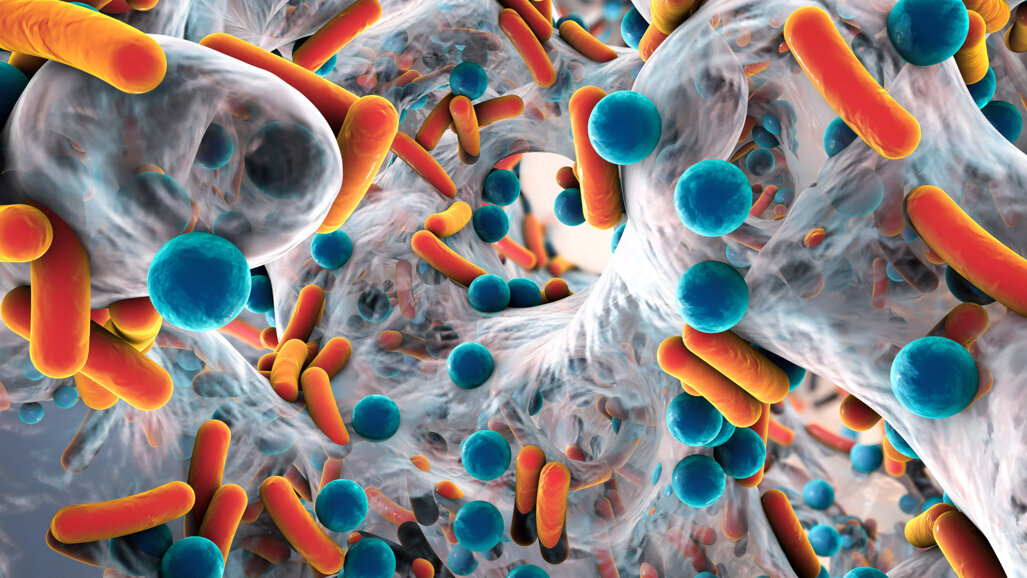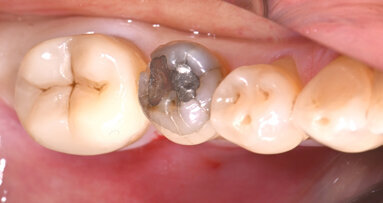SALÉ, Morocco: Concerns about the potential cytotoxicity and environmental impact of conventional root canal irrigants have prompted the exploration of alternative, natural agents with anti-biofilm properties. To this end, a recent systematic literature review by researchers from the International University of Rabat in Morocco assessed the anti-biofilm efficacy of various plant extracts as root canal irrigants, revealing their potential for combating these biofilms.
Out of 78 articles identified from the systematic database search, eight met the inclusion criteria, including evaluating at least one plant extract and one conventional root canal irrigant against endodontic biofilms. The eligible studies examined 12 different extracts from ten plants against eight single-species biofilms and one multispecies biofilm.
The findings showed that Psidium cattleianum (strawberry guava) and Psidium guajava (common guava) demonstrated superior anti-biofilm activity compared with chlorhexidine and sodium hypochlorite (NaClO). Similarly, Allium sativum (garlic) showed comparable efficacy to NaClO. Furthermore, a blend of Cymbopogon martinii (palmarosa) essential oil and NaClO exhibited enhanced anti-biofilm effects against multispecies biofilms compared with each agent used alone. Extracts of Mikania glomerata Sprengel, Salvadora persica (miswak), Camellia sinensis (green tea) and Vitis vinifera (grape seed) displayed anti-biofilm properties, but were generally less effective than conventional irrigants.
The review indicates that certain plant extracts possess qualities that promise to combat endodontic biofilms. It also suggests that combining plant extracts with conventional agents such as NaClO may further enhance anti-biofilm effectiveness. However, the authors cautioned that further research is needed to optimise these combinations and to evaluate their clinical applicability and safety.
The study contributes to the growing body of evidence supporting the use of natural compounds in endodontic therapy, which offer potential benefits regarding biocompatibility and environmental sustainability.
The study, titled “Antibiofilm efficacy of plant extracts as root canal irrigants in endodontics: A systematic literature review”, was published online on 24 October 2024 in Frontiers in Dental Medicine.
Topics:
Tags:
Minimally invasive cosmetic dentistry (MiCD), also known as “do no harm” dentistry, focuses on preserving the natural tooth structure while achieving ...
LAMEZIA TERME, Italy: The selection of the restorative material is a crucial step in prosthodontics. Hybrid ceramics offer a range of properties well suited...
MELVILLE, N.Y., US: Henry Schein has recently launched the INT_ENDO campus, a new global platform designed to meet the growing needs of dental professionals...
ZURICH, Switzerland: Swiss-based start-up Odne has recently announced that it has received market clearance from the US Food and Drug Administration (FDA) ...
Internal root resorption (IRR) is the loss of dental hard tissue due to odontoclastic activity. In most cases, it is asymptomatic, and the aetiology is ...
Live webinar
Wed. 4 February 2026
4:00 am UAE (Dubai)
Live webinar
Wed. 4 February 2026
8:00 pm UAE (Dubai)
Live webinar
Thu. 5 February 2026
11:30 pm UAE (Dubai)
Dr. Boota Ubhi BDS, FDS RCS (Edin), MDentSci, MRD RCS (Eng) Specialist, Cat Edney
Live webinar
Fri. 6 February 2026
5:00 am UAE (Dubai)
Dr. Zeeshan Sheikh Dip.Dh, BDS MSc, M.Perio, PhD, FRCDC, Dip-ABP
Live webinar
Wed. 11 February 2026
4:00 am UAE (Dubai)
Prof. Dr. Wael Att, Dr. Robert A. Levine DDS, FCPP, FISPPS, AOD, Dr. Larissa Bemquerer ITI Scholar at Harvard
Live webinar
Wed. 11 February 2026
8:00 pm UAE (Dubai)
Dr. med. dent. Sven Mühlemann
Live webinar
Wed. 11 February 2026
9:00 pm UAE (Dubai)
Prof. Dr. Samir Abou Ayash



 Austria / Österreich
Austria / Österreich
 Bosnia and Herzegovina / Босна и Херцеговина
Bosnia and Herzegovina / Босна и Херцеговина
 Bulgaria / България
Bulgaria / България
 Croatia / Hrvatska
Croatia / Hrvatska
 Czech Republic & Slovakia / Česká republika & Slovensko
Czech Republic & Slovakia / Česká republika & Slovensko
 France / France
France / France
 Germany / Deutschland
Germany / Deutschland
 Greece / ΕΛΛΑΔΑ
Greece / ΕΛΛΑΔΑ
 Hungary / Hungary
Hungary / Hungary
 Italy / Italia
Italy / Italia
 Netherlands / Nederland
Netherlands / Nederland
 Nordic / Nordic
Nordic / Nordic
 Poland / Polska
Poland / Polska
 Portugal / Portugal
Portugal / Portugal
 Romania & Moldova / România & Moldova
Romania & Moldova / România & Moldova
 Slovenia / Slovenija
Slovenia / Slovenija
 Serbia & Montenegro / Србија и Црна Гора
Serbia & Montenegro / Србија и Црна Гора
 Spain / España
Spain / España
 Switzerland / Schweiz
Switzerland / Schweiz
 Turkey / Türkiye
Turkey / Türkiye
 UK & Ireland / UK & Ireland
UK & Ireland / UK & Ireland
 International / International
International / International
 Brazil / Brasil
Brazil / Brasil
 Canada / Canada
Canada / Canada
 Latin America / Latinoamérica
Latin America / Latinoamérica
 USA / USA
USA / USA
 China / 中国
China / 中国
 India / भारत गणराज्य
India / भारत गणराज्य
 Pakistan / Pākistān
Pakistan / Pākistān
 Vietnam / Việt Nam
Vietnam / Việt Nam
 ASEAN / ASEAN
ASEAN / ASEAN
 Israel / מְדִינַת יִשְׂרָאֵל
Israel / מְדִינַת יִשְׂרָאֵל
 Algeria, Morocco & Tunisia / الجزائر والمغرب وتونس
Algeria, Morocco & Tunisia / الجزائر والمغرب وتونس























































To post a reply please login or register